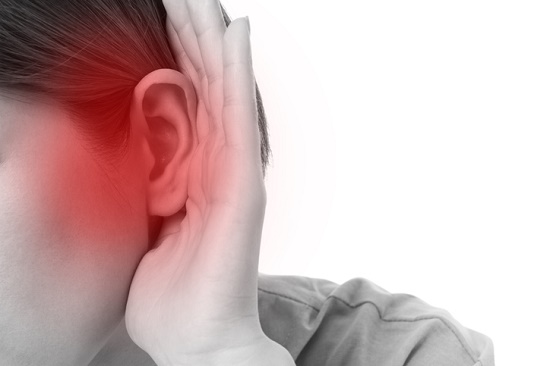Hearing loss is only a problem for older people, right?
Not exactly. While it’s true that your odds of acquiring hearing loss increase as you age, you can, in truth, develop hearing loss at any age.
According to the NIDCD, 26 million Americans age 20 to 69 have high-frequency hearing loss from being exposed to loud sounds at work and during leisure activities. And that includes 1 in 14 generation Xers, age 29-40, who already have hearing loss.
Seeing that hearing loss can hit at any age, it’s vital to recognize the signs as they’re commonly subtle and difficult to notice.
Here are 8 silent signs of hearing loss that should prompt you to get a hearing test.
1. Ringing in the ears
Have you ever come home from a noisy live concert and noticed a ringing or humming in your ears?
If so, that means you’ve damaged the nerve cells of hearing in your inner ear. If it’s only come about a few times, the harm is most likely transient and mild. However, continual exposure or one-time exposure to very loud sounds could produce irreversible damage and hearing loss.
If you continue to hear ringing in your ears, you should schedule a hearing test as this is one of the initial signs of hearing damage. And if passing up upcoming concerts is not a possibility for you, your hearing specialist can help you avoid further injury with personalized earplugs.
2. Balance problems
Your hearing and balance are intricately connected. In fact, a large element of your ability to stay balanced is the result of elaborate structures within the inner ear.
If you find that you’ve been more clumsy as of late, the issue may in fact be with your ears. In fact, a study by Johns Hopkins University found that those with hearing loss were three times more likely to have a history of falling, depending on the degree of hearing loss.
3. Memory impairment
Your short-term or working memory is very limited, able to cope with only a few items for a short duration. That indicates you don’t have time to get caught up on missed words during fast-moving discussions.
With hearing loss, speech comprehension suffers as you can completely miss or misunderstand the speaker’s words or statement. This manifests at a later time when you can’t call to mind important information.
4. Painful sounds
When you lose your hearing, you may become overly sensitive to certain sounds, to the point where they become painful.
The technical term for this is hyperacusis, and you’ll want to contact a hearing professional if the issue persists or becomes intolerable.
5. Listening fatigue
Think of spending the day trying to determine meaning from half-heard words and sentences and responding to questions you didn’t completely hear. That amount of attention can wear you out quickly.
If you discover that you’re excessively exhausted at the end of the day, hearing loss may be to blame.
6. Difficulty hearing in groups
Early stage hearing loss usually doesn’t present itself during person-to-person discussions or in tranquil settings. Most often, hearing loss only becomes a problem in the presence of background noise or in group situations.
7. Not hearing calls or alarms
Hearing loss is generally tough to notice or detect as it grows little by little each year. Oftentimes, friends and family members will notice the hearing loss before the person suffering from it does.
However, there are some subtle warning signs you can look out for, including the inability to hear alarms or calls, the doorbell, or the TV at normal volume.
8. Difficulty hearing movie dialogue
With hearing loss, you may have particular difficulty hearing the conversations in tv shows and movies. That’s because the majority of cases of hearing loss affect high-frequency sounds to the highest degree, and speech is a high-frequency sound.
It’s never too early to care for your hearing health. If you encounter any of these signs or symptoms, arrange an appointment with your local hearing care professional.

